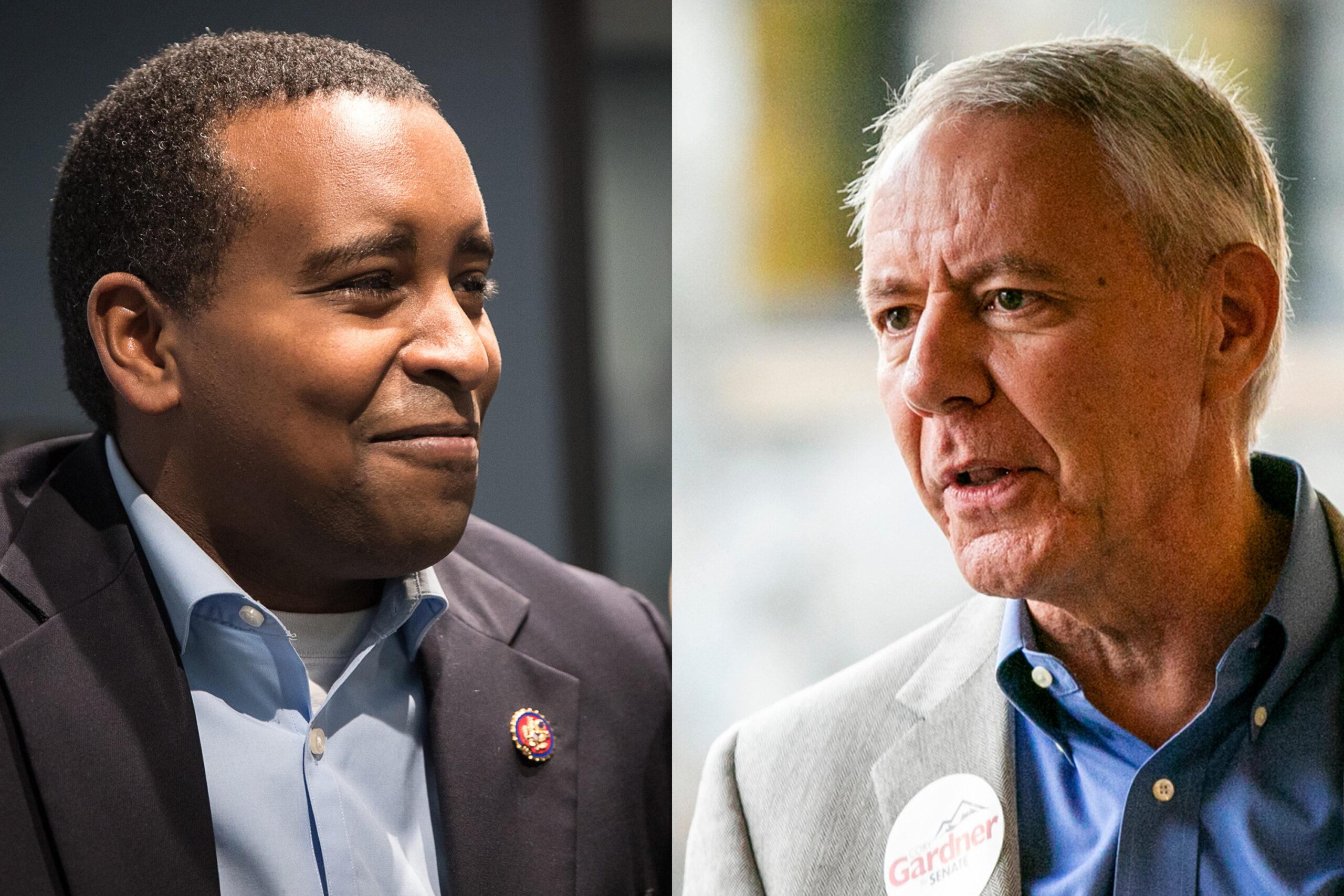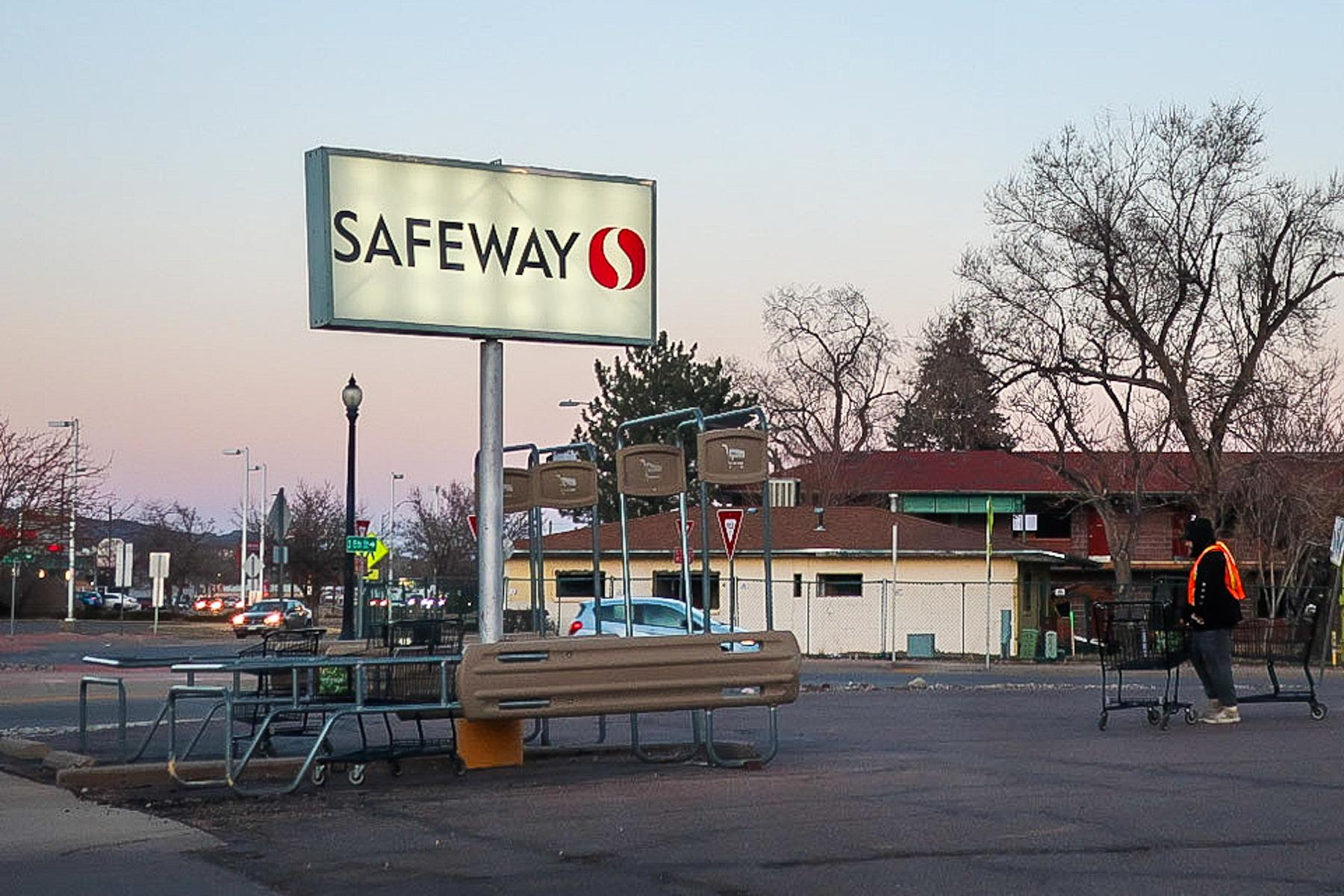
On most issues, Colorado congressmen Ken Buck and Joe Neguse are political opposites. Rep. Buck, a conservative Republican who represents Colorado’s Eastern Plains, is a former head of the state GOP. Rep. Neguse, whose district is centered in Boulder county, is a rising member of the Democratic leadership.
But the two have formed what some observers say is an unusually successful partnership, illustrated most recently by the passage of a bill that puts the National Park Service in charge of the former Amache internment camp in southeast Colorado. During World War II, 7,000 people of Japanese descent, mostly American citizens, were held at the camp.
Nationally, Rep. Neguse and Rep. Buck are working on a package of antitrust reforms meant to rein in the nation’s high-tech behemoths, such as Amazon, Facebook, Google and Apple.
In a joint interview, they spoke with Colorado Matters host Ryan Warner about the need for bipartisanship in an incendiary political environment.
This interview has been edited for clarity and length.
Warner: Let's talk about some projects that the two of you have been involved in, starting with one that passed last week to put the former Amache internment camp in Southeast Colorado under the National Park Service. That bill is one of several that you two have joined forces on through the years. Congressman Buck, Amache is in your district. What is the practical benefit now of having it come under the control of the park service?
Rep. Buck: It is something that is important for a number of reasons. First and foremost, it recognizes a dark chapter in American history, and it seeks to address that and make sure that that never happens again. I think it has some economic advantages in Southeastern Colorado: certainly being a national historic site will put it on the map, so to speak, and folks will visit. That part of the state is particularly hard hit by drought and other circumstances that any economic benefit like this will be important.
On a national scale, it is something that we need to make sure we understand: the primary role of government is to protect our liberties and never take our liberties away. This is just a really good example of how bad government policy can be used against Americans.
Warner: Rep. Neguse, you co-sponsored this bill and worked to get it through the House Natural Resources Committee. Give me an example in day-to-day practice of how you and Congressman Buck worked together on this bill.
Rep. Neguse: Well, it's a great example of what we can accomplish when we are listening to each other and leading locally. We introduced the bill about a year ago, with Rep. Buck's help. It's almost a relay race, with different members of the delegation picking up the baton and carrying it to the next stage.
In terms of day-to-day, it was a lot of phone calls and conversations on the floor between Ken and I as we tried to figure out the best ways to maneuver this bill, to get it onto the House floor, which is a difficult exercise in terms of the limited floor time that exists. And then when the bill ran into some roadblocks in the Senate, again I have to credit Ken for stepping in and helping as he worked to convince one Republican senator in particular who had some concerns about adding land to the National Park Service system.
Warner: You make reference there to Senator Mike Lee of Utah, who said he didn't want to see the park service add anything to its landholdings, even the less than a square mile where Amache is. Rep. Buck, I take it that you reached out to Senator Lee. What was that conversation like?
Rep. Buck: I won't go into the conversation, but I will tell you that Mike has a very legitimate concern in the West of how many acres the federal government controls and how necessary it is to consider the ramifications on state and local government and business. So, I understand his concern and share his concern. This was a slightly different situation because property wasn't being condemned by the federal government and it wasn't being taken; it was a donation to the federal government. When Mike was more aware of the big picture of how this would proceed, he withdrew his objection.
Warner: I'll note that the two of you are now involved in a similar effort to preserve the Dearfield homestead, the Black community that thrived in the first part of the twentieth century near Greeley.
A lot of members of Congress cross party lines to work on bills that benefit their states, but is it somewhat quaint, maybe even misleading, to focus on these sorts of relationships when democracy feels under siege? False claims about the 2020 election are rampant and there was an attack on the Capitol, partly fueled by that misinformation. Is your relationship, while important, not necessarily the big picture of where the country is headed in terms of partisanship?
Rep. Neguse: I don’t think they're mutually exclusive. Obviously, we both have strong views on the consequential challenges that face us as a state and as a country, and we are committed to pursuing our solutions to addressing those challenges. But I also think it's important for us to find ways to work together proactively and collaboratively.
I'm proud that we have been able to do that on a number of different bills and proposals with Rep. Buck. We have districts that are adjacent to one another, different communities that we both represent collectively and it’s given us the ability to find ways to partner on issues that are important.
Warner: Rep. Buck, to this idea that there may be these bipartisan relationships in Congress, yet a significant rift in the country and between the parties. Do you want to reflect on that?
Rep. Buck: [The Colorado delegation] spends more time on the plane some months with each other than we do with our own families. We have developed personal relationships and we have met each other's families. We have transcended the professional on-the-floor-debating-issues relationship.
We have a pretty high turnover in Congress. My guess is that a third to a half of Congress have been members for less than four terms. The opportunity to work together on issues really comes about as a result of developing some of these personal relationships and trust. I know that when Joe tells me that he's going to go to his leadership and he's going to ask them for something, I know that to be true. And I know that I can count on all of the Colorado delegation to work closely on important issues.
Warner: You have both pressed hard for reform of tech behemoths like Amazon, Google, Apple and Facebook. You each serve on the House Judiciary Subcommittee that deals with antitrust issues. In 2020, the subcommittee recommended a package of major reforms that some say could break up these companies, or at least dramatically change how they do business. Rep. Buck, you have often described yourself as a pro-business Republican, and now you're taking aim at some of the biggest businesses around. Why?
Rep. Buck: Well, because I am a pro-business Republican, just as I believe my friend Congressman Neguse is pro-business Democrat. The reality is that we need more competition in the marketplace to promote business. It isn't a matter of allowing monopolies to stamp out competition and to harm the marketplace. I think that members of Congress who are pro-business are the ones who are fighting this monopoly power that these four big tech companies have in the marketplace.
Warner: Congressman Neguse, your district includes Boulder, which is a center for tech startups. I know you have held hearings on these issues. What are some of the common complaints you hear?
Rep. Neguse: I represent Boulder and Fort Collins: communities where we have burgeoning startups and a thriving tech economy. We have heard clearly and loudly from a wide array of small businesses of the ways in which these large companies have made it very difficult for them to compete through anti-competitive behavior.
Each of those big digital platforms — the combination of those factors makes it very difficult for a small business here in Colorado to be able to compete, thrive and flourish. Our state has long been known, and heralded nationwide, as a hub for innovation, and that certainly applies to the communities I represent in the Second District. But it's becoming more difficult to maintain that in light of the anti-competitive behaviors that we are trying to prevent via the legislation Ken and I have both introduced.
Warner: So gentlemen, help us paint a picture of the future you'd like to see. Is this a Bell-style breakup that you'd like to effectuate? What is the ideal outlook for big tech, Congressman Buck?
Rep. Buck: I think the ideal vision is to make sure that consumers have a variety of choices and that consumers are, for example, in charge of their search data. If I go onto a particular search engine and search for a year, I should own that data.
If we have enough competitors in the marketplace of searches, we should have those companies paying consumers for the opportunity to accumulate that data and sell it to advertisers. Likewise, if I just want to protect my privacy and I don't want my search company selling my data, I should have that opportunity. And that comes about through competition. I'm not looking to break up companies as much as I am [looking] to make sure that we allow consumers to create the marketplace that benefits consumers the most.
Warner: That is to say consumers beyond their spending: their identities, their behavior online and their personal information have been monetized without their buy-in. Do you think that's true?
Buck: It's true. On page 17, the fourth paragraph down of some agreement they sign when they sign up for an account, there is a statement that the search company owns the data. And nobody really goes into that agreement thinking that they have the ability to control that.
It's much like the cell phone, the mobile phone changes that were made in 1996 in the Telecommunications Act where an individual owns their cell phone number, owns their contacts, owns their photos so that when you move from one cell phone company to another, you get to move all of that. It increases the portability of information; increases the competition.
Warner: Congressman Neguse, paint us a picture of what you think the ideal landscape looks like and how feasible it is getting there, given the size, the influence and the money of these companies.
Rep. Neguse: From my perspective, the laws that we have proposed are fairly straightforward and non-controversial — and they're all bipartisan. Whether it's strengthening the tools that exist under current law for our antitrust regulatory agencies like the FTC, or Rep. Buck's bill to enable our state attorneys general to be able to pursue various actions in a court of law, in a given state, as opposed to doing it in the state of where a company happens to be incorporated.
I think these are common-sense proposals. They deserve to be heard. Ken and I are both leveraging our positions — me serving in house leadership, and Ken is the ranking member of the antitrust subcommittee — to do our part to get these bills to the floor for a vote. I'm optimistic that we will get there notwithstanding the very ardent and vociferous and well-funded opposition. At the end of the day, I think that we're going to make some progress.









